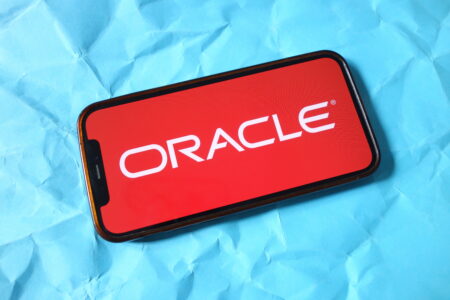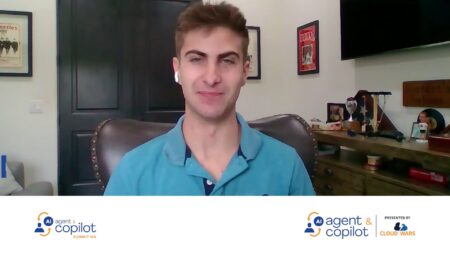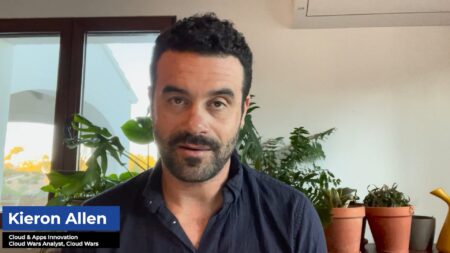Kieron Allen, Toni Witt, Bob Evans, and Tom Smith provide an overview of the upcoming Acceleration Economy AI Ecosystem Summit and explore the driving factors behind how AI has led to a new ecosystem with co-creation.
Discover how AI has created an entirely new ecosystem of partnerships with customer-centric co-creation and a renewed focus on reimagining what’s possible when companies work together at the Acceleration Economy AI Ecosystem Summit. Register now for the digital event, taking place on Thursday, December 14th at 12 pm EST.
Highlights
How the Cloud Wars Top 10 Leads the Charge (02:00)
With the GenAI Revolution, everything is changing. Much depends on how the tech companies behave and work together because generative AI is causing such major changes among businesses that are starting to use it.
On the ecosystem side, some of the Cloud Wars giants are forming platform partnerships. Oracle and Microsoft are extending their relationship to make it easier for customers to use their technologies together. This partnership was formed by Microsoft CEO Satya Nadella and Oracle chairman Larry Ellison discussing what the right thing is to do for customers. New times and new circumstances call for new approaches.
Workday has used AWS as its primary cloud provider for a while. Now, the relationship has shifted to more of a partnership, as AWS is co-selling some of Workday’s products and services, including its generative AI services.
Google Cloud introduced the concept of industry value networks for systems integrators. This emphasized a way of understanding that it’s not just about tech projects affecting one company but considering the whole supply chain, talent chains, and logistics, for instance.
ServiceNow has extended its partnerships with Deloitte and Accenture, co-creating to provide more offerings together. The promise of industry clouds or industry-specific solutions is becoming more of a reality with these accelerating co-creation efforts, many of which have been accelerated because of AI.
Companies Leading Co-Creation Through the AI Ecosystem (05:45)
There are several compelling examples of companies leading co-creation through the AI ecosystem. One is Celonis, a leader in the process mining field. It has a deep history in ecosystem partnerships. For example, it works with the airline Lufthansa to build a custom application for predictive analytics to find and track lost invoices.
Cybersecurity firm Lookout develops software that helps its partners. Primarily serving managed security service providers (MSSPs), Lookout offerings detect threats around mobile devices from phishing links or ransomware.
Chronosphere, which makes cloud native observability, has a close alliance with Google Cloud. It runs its software in Google Cloud. Their product engineering teams collaborate on initiatives involving scalability. This level of collaboration and co-creation speaks to a strategic alliance between firms that are geared toward better products and better integration, helping their joint customer bases.
Cloud database firm Couchbase works closely with AWS. This collaboration is geared toward driving down the TCO of cloud database infrastructure by leveraging the underlying technology of AWS.
UiPath is another company that is heavily involved with its efforts in the AI ecosystem. It partners with Teradata to combine UiPath’s automation with Teradata’s powerful analytics capabilities. This co-creation enhances customers’ ability to manage large amounts of data and implement complex AI-driven automation.
At its recent Imagine conference, Automation Anywhere announced a series of expanded partnerships, including one with Google Cloud. Its aim is to accelerate the adoption of AI within the enterprise.
The AI Ecosystem Drives a New Wave of Value (11:30)
With generative AI sweeping the market, it created a vacuum of new use cases that businesses will want to fill rather quickly. Co-creation is one of the fastest ways for technology providers as well as enterprise customers to hone in on those niche AI use cases. Collaborating is essential for companies to increase their pace of innovation and stay competitive.
In the Bayer and Google Cloud partnership, Bayer started experimenting with Google’s TPUs (tensor processing units) to accelerate drug discovery. It’s using Med-LaLM 2, Google’s medicine-specific generative AI capabilities, to generate legal documents and accelerate the compliance process. This is a great example of the ability of co-creation to drive value and flesh out specific use cases at a large scale and can have a positive global impact.









